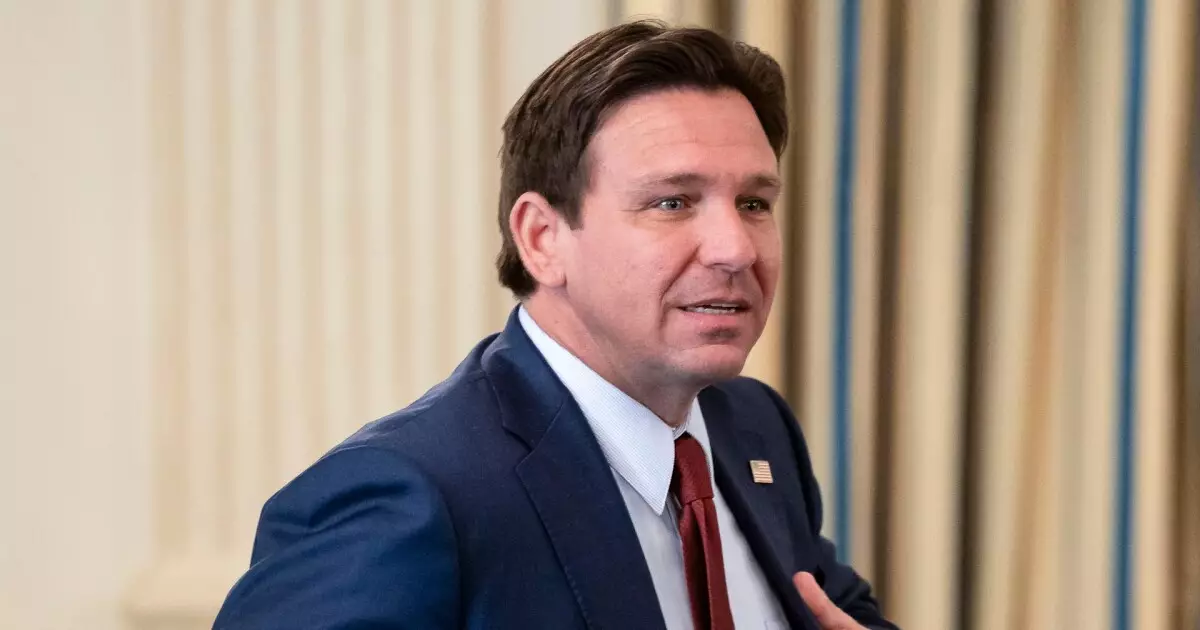In the world of politics, few things provoke deeper scrutiny than financial allocations—especially within the confines of Florida’s Republican-controlled legislature. Recently, the Florida Congress approved a budget amounting to $115.1 billion, down from last year’s $118.6 billion. This budget mirrors not merely fiscal prudence but political maneuvering, rife with underlying tensions between the House Speaker, Senate President, and their chart-topping leader, Governor Ron DeSantis. The stakes are particularly high, with DeSantis contemplating future presidential ambitions while also nudging towards potential gubernatorial candidates positioned within his own family. The urgency behind budget choices lies not only in immediate fiscal responsibility but also in setting the scene for the impactful 2026 governor’s race.
Tax Cuts: A Diminished Outcome from Grand Proposals
Florida’s tax reduction measures have morphed through the legislative process. Originally envisioned as sweeping reforms aimed at drastically lowering the state sales tax and providing statutory rebates, those ambitious plans have evaporated into more modest concessions. While the ejection of the business rent tax and a back-to-school sales tax holiday are victories, they seem paltry when weighed against a projected $6.9 billion deficit looming by the fiscal year 2027-28. Instead of enacting genuinely transformative fiscal policies, the Republican leaders opted for what can only be described as a temporary band-aid that avoids addressing root problems in the tax structure.
Critics—including the liberal Florida Policy Institute—are rightly pointing out that this budget represents mere “business as usual.” With rising concerns about a potential economic recession and extensive cuts to federal funding projected, the Florida legislature has largely sidestepped vital discussions. The question remains whether the smaller fiscal moves reflect responsible governance or growing hesitance to tackle complex issues head-on.
Debt Reduction: Economic Prudence or Political Calculus?
Simultaneously, the approved budget encapsulates significant debt reduction measures, committing $250 million yearly towards paying off state debts ahead of maturity. Yet, it remains critical to evaluate whether these actions genuinely enhance fiscal health or exist primarily as a political facade. With $580 million earmarked for advanced debt payments this coming fiscal year, the proclaimed savings from reduced interest payments come with an asterisk—are these funds effectively contributing to holistic economic growth, or merely swapping one financial obligation for another?
Senate President Ben Albritton’s mantra of forwarding a leaner government seems to resonate well with those favoring fiscal conservatism, but balancing small cuts with non-existent revolutionary tax reform is inherently flawed. Reducing the budget by eliminating vacant positions is one tactic, and while it seems a practical path, it also raises alarm about the operational capacity of vital services. Are we, in fact, ensuring our legislative choices foster efficiencies, or are we sacrificing essential public services at the altar of political expedience?
Future Challenges: Navigating an Uncertain Economic Landscape
As we peer into the horizon, Florida’s fiscal framework needs immediate focus for a sustainable future. The specter of a $6.9 billion deficit dominated discussions, yet a palpable feeling of inertia persists. While some fiscal policy leaders advocate for safeguarding the ‘rainy-day fund’—currently estimated to be at 10% of the general fund—many stakeholders should demand more. Should we indeed bolster this safety net to 25% for future emergencies? Or is this just a screen for lawmakers to avoid making the tough choices required to modernize our fiscal vision?
Considering the forthcoming hurricane season and the wild uncertainties it carries, embracing robust emergency strategies should not be an option but an obligation. As devastating federal funding cuts loom, engagement in meaningful dialogue should prevail over mere political posturing.
In this moment of political tension and budgetary uncertainty, the decisions made by Florida’s legislators demand increasingly vigilant scrutiny. Each dollar allocated now has lasting repercussions, not simply riding the waves of popular sentiment but potentially steering Florida towards sustainable growth, or worse, setting it adrift amidst an economic tempest. As we continue to navigate this complicated landscape, one can’t help but wonder if the focus on short-term gains will ultimately hinder long-term stability for Floridians. Only time will reveal how these budgetary seeds sown today will flourish—or fail—when thrown into the epic storms that await.

